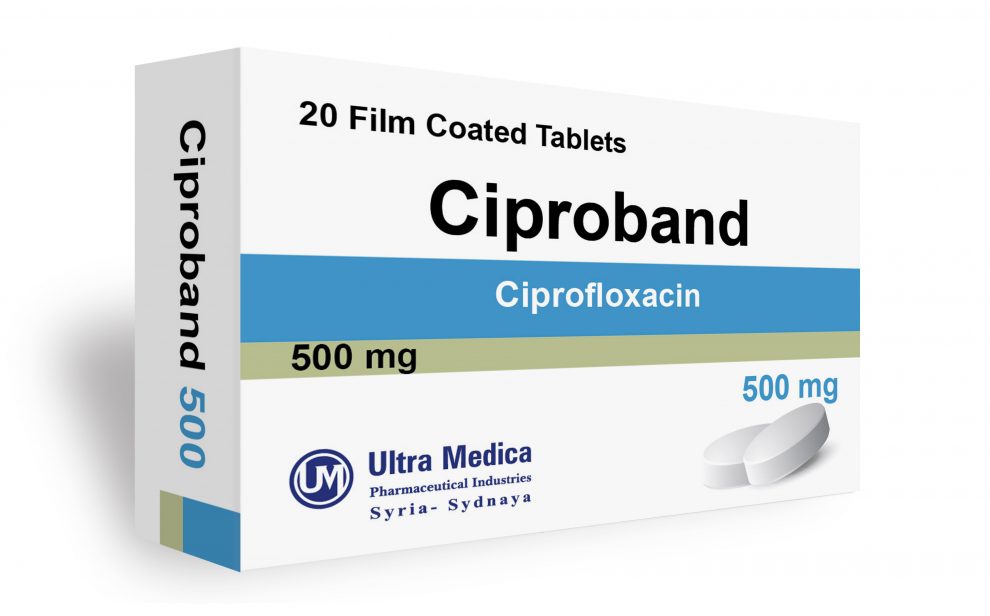Ciprofloxacin is a well known antibiotic which is used to cure certain pathogenic bacteria. The infections such as diarrhea, upper respiratory tract infections, joint and bone infections are treated with the help of ciprofloxacin 500 mg dosage. Besides, it is also used to treat several skin infections and urinary tract infections. In this article we will study the benefits and side effects of using ciprofloxacin 500 mg along with precautionary measures which are needed before using this medicine.
Contents
What is ciprofloxacin?
What does ciprofloxacin treat? Ciprofloxacin hcl 500 mg is a widely used antibiotic to treat certain bacterial infections such as infectious diarrhea, skin, bone and joint infections, typhoid fever, and infections of upper respiratory tract. In females it is used to treat certain vaginal and urinary tract infections. However to improve efficacy of the medicine it is advised with some other broad spectrum antibiotics for the complete eradication of bacteria. In most of the cases, the medicine is taken orally in the form of ciprofloxacin 500 mg tablet or ciprofloxacin 500 mg capsules however sometimes, the intravenous administration of the medicine is also recommended. The medicine is also available in the form of ear drops and eye drops to treat ear and eye infections. What is ciprofloxacin mechanism of action? Ciprofloxacin belongs to a class of medicines known as quinolone antibiotics which reduces the bacterial growth and in this way helps to treat infections.
Ciprofloxacin 500 mg Common Uses:
Ciprofloxacin is an antibiotic which has certain applications. It is used to treat several bacterial infections. The most common uses of ciprofloxacin 500 mg include:
- Ciprofloxacin belongs to a class of medicines known as quinolone antibiotics which reduces the bacterial growth and in this way helps to treat infections.
- The medicine is strictly advised for the treatment of bacterial infections, it has no proven action on viral infections. You need doctor’s prescription for using antibiotics or else overuse of bacterial infections can reduce the effectiveness of medicines.
- Ciprofloxacin is used to treat Pericarditis, endocarditis, otitis, cellulitis, prostritis, anthrax etc.
- Ciprofloxacin 500 mg is used to treat uncomplicated infections of urinary tract and some genital infections such as gonorrhea.
- There are some proven benefits of using ciprofloxacin 500 mg for sinus infections.
- Some minor infections of gum are treated with the help of ciprofloxacin 250 mg.
- Ciprofloxacin 500 mg benefits are proven for the treatment of mild infections.
How to use Ciproflaxacin?
As the doctor advises ciprofloxacin, you need to go through the details of medication guidelines as well. The medicine is generally prescribed twice a day for a period of 3 to 5 days depending on the severity of infection. In most of the cases, the medicine is taken orally. Before taking such medicines you also need to ask doctor about the safety e zespecially if you are using any dietary supplements along with the prescribed medicine. To increase the efficiency, you need to follow time strictly as you use this medicine. You need to complete the course of medicine as prescribed by doctor even if the symptoms of infection disappear as withholding the drug suddenly can result in repeated infection. If you encounter any worsening of symptoms contact your doctor for the replacement.

Ciprofloxacin 500 mg Side Effects:
There are certain side effects which are associated with the use of ciprofloxacin. These commonly reported side effects include:
- Gastro intestinal disorders such as diarrhea and stomach cramps
- Nausea, light headedness, sleeping disturbances.
- The side effects which are mentioned above are mild; you need to consult your health care provider if there is any worsening in these side effects such as severe dizziness, irregular heart beat and fainting.
- Some patients also report persistent diarrhea, severe abdominal pain along with blood or mucus in stools. You need to consult your doctor if you encounter such conditions.
- Ciprofloxacin 500 mg for STDs is used but if you encounter swelling and rash at genitals, stop using the medicine and consult your doctor immediately.
- The use of this medicine sometimes causes mild to severe allergic reactions. Ciprofloxacin 500 mg allergic reactions include rash and itching, swelling of face and tongue, breathing difficulties along with mild to severe dizziness.
- The medicine if used in excess is can cause renal toxicity which is though reversible but you need to inform your doctor if you have a history of renal disease. Avoid ciprofloxacin 500 mg overdose.
Precautions:
You need to follow some precautionary measures before taking this medicine. If you are allergic to such medications, you need to tell your doctor. Some active Ciprofloxacin 500 mg ingredients in this product are likely to cause allergic reactions such as rash, breathing difficulties and mild swelling. In the same way you need to discuss your medical history with your doctor especially if you have a history of cardiac health concerns, diabetes, joint problems, hepatic or renal diseases, psychological disorders such as mood swings, anxiety and depression, seizures or any tumor etc. You need to be careful while taking the medicine in the following cases:
- Ciprofloxacin 500 mg during Pregnancy:
Tell your doctor if you are pregnant before using the medicine. Though the use of this medicine is not proven to harm the growing fetus but some undesirable reactions might appear.
- ciprofloxacin 500 mg breast feeding
If you are breast feeding you need to inform your doctor as the ingredients of this medicine enter in the breast milk as well. The serious reactions are expected in infants if the mother is taking ciprofloxacin. Also avoid taking ciprofloxacin 500 mg on empty stomach.
-
Bottom Line:
Ciprofloxacin 500 mg is an antibiotic which is used to treat various bacterial infections. The infections such as upper respiratory tract infections, gastric and intestinal infections, and genital infections are often treated with the help of this medicine. The medicine is linked with some side effects such as diarrhea, stomach cramps, renal and hepatic toxicity etc. It is therefore important to consult your health care provider if you have a history of renal or hepatic diseases, diabetes and cardiac health concerns.
Read this Article : Stool Softeners for Constipation










